| |
|
Tuesday, April 8 Jacob Goldberg Lecture: Iran versus Israel
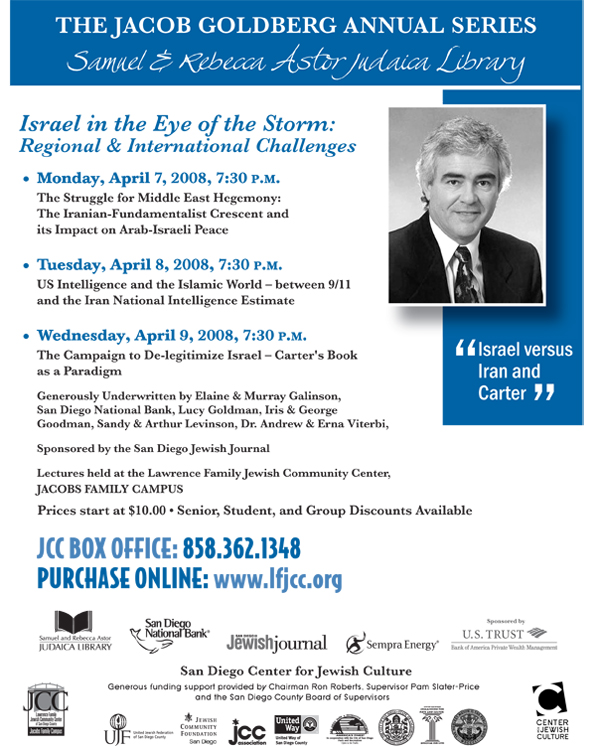
Friday-Sunday, April 11-13 Mountain Chai~Big Boys Getaway
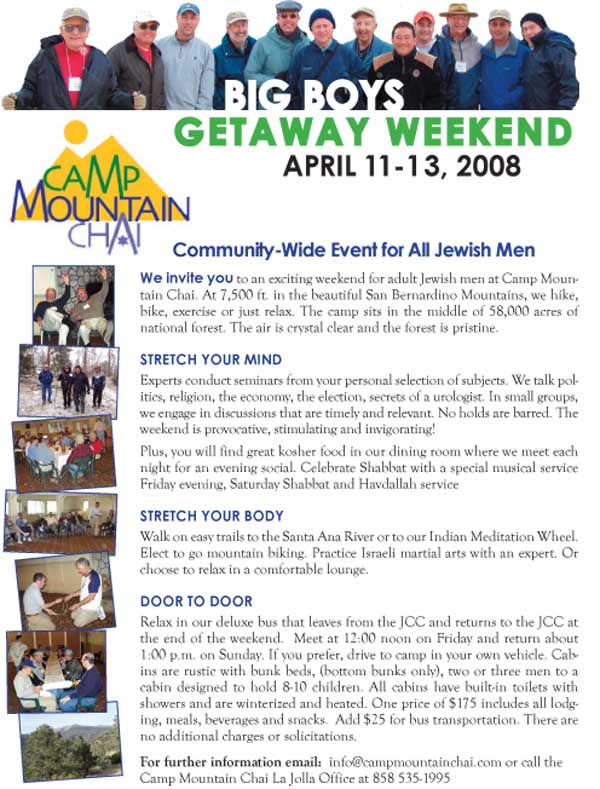
SUNDAY, APRIL 13 Beth Israel~Israel at 60 photo exhibit

Sunday, April 20 Beth Am~Second Night Seder
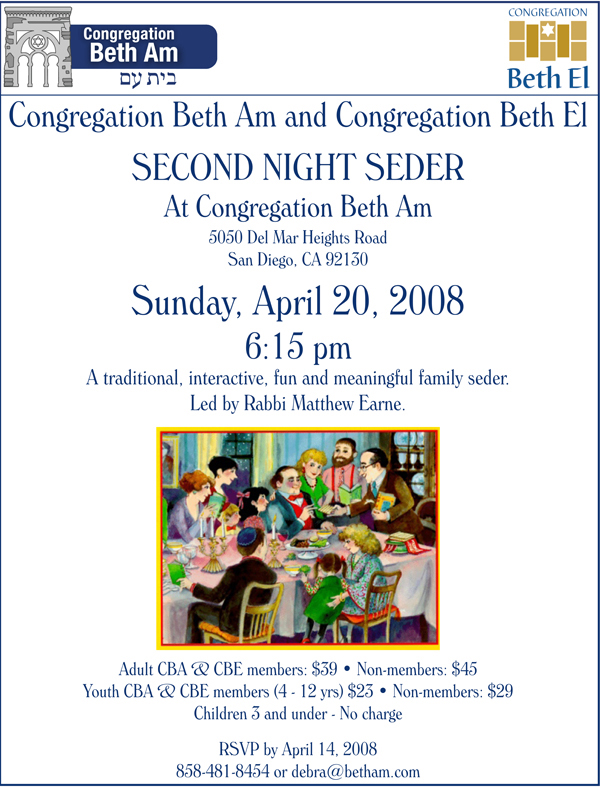
Wednesday, May 28 JFS~Ellen Saks lecture on mental illness
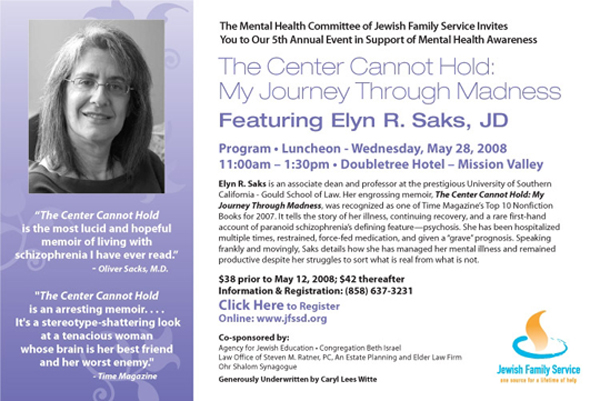

Israel again promises checkpoint removal
By J. Zel Lurie
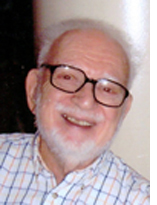 DELRAY BEACH, Florida—As Secretary of State Condi Rice left Jerusalem for Amman on March 31 to meet with Palestinian President Mahmoud Abbas and King Abdullah, Israeli Prime minister Ehud Olmert found it fitting to announce that he had approved the contraction of 800 additional housing units in the West Bank settlement of Beitar Illit. DELRAY BEACH, Florida—As Secretary of State Condi Rice left Jerusalem for Amman on March 31 to meet with Palestinian President Mahmoud Abbas and King Abdullah, Israeli Prime minister Ehud Olmert found it fitting to announce that he had approved the contraction of 800 additional housing units in the West Bank settlement of Beitar Illit.
Thus he met the demand of Shas, who will stay in the Olmert/Barak coalition so long as the government ignores its commitment to freeze settlement construction and evacuate some settlements,
At the same time the Jerusalem Municipality, which has a Haredi Mayor, approved the construction of 500 additional housing units in the East Jerusalem settlement of Pisgat Ze’ev. To the Palestinians who hope to make East Jerusalem their capital, this is also a violation of the commitment to freeze construction.
At her meeting with Defense Minister Ehud Barak the day before, Mr. Barak promised to evacuate 50 checkpoints between the Palestinian cities of Nablus, Tulkarm, Ramallah and Jenin, Their elimination would consider able ease Palestinian traffic between the main cities to the north of Jerusalem… if the promises are kept.
The Israel army’s record on keeping promises is not good. Six months ago, the government promised to evacuate 24 checkpoints. Mahsom Watch, a group of Jewish ladies that monitors the checkpoints, looked for evacuations but never found them.
Back in November 2005, after an all-night session in Jerusalem, Dr. Rice secured Israel’s agreement to work with the United States on eliminating checkpoints and settlements. These complex negotiations were followed by nothing of consequence.
Now on her 14th trip to the Middle East since the beginning of 2007, Dr. Rice told reporters at a news briefing: “We haven’t been monitoring and verifying during the last two years. We want to be much more systematic about what is being promised and what is being done than we have been able to be in the past.”
I wonder who stopped her; what prevented her from monitoring Israel’s promises.
Four years ago, in April 2004, Dov Weisglas, a special emissary of the Israel government, went to Washington to see Dr. Rice about Israel’s actions on the West Bank. According to a letter he wrote to Dr. Rice after the meeting, the American ambassador to Israel would receive within 30 days a map defining the boundaries of all the settlements. On checkpoints, weisglass promised that the Israel Army would present to the American ambassador to Israel a list of the checkpoints and roadblocks. Weisglass wrote” “a list of barriers already removed and a timetable for further removals will be included.”
No lists were ever received by the American ambassador. No map showing the boundaries of the settlements was produced, not within 30 days or four years. No barriers were ever removed. But, according to the Israel press at the time Dr. Rice had agreed to all of Israel’s demands.
According to the United Nations observer in Jerusalem, 30 barriers have been added since the Annapolis meeting last fall.
Mark Regev, the Israeli spokesman, told the press after Dr. Rice spoke at the news briefing: “Any taking down of a checkpoints,” he said. “is a calculated risk.” It balances Israel’s need for security with Palestinian need to travel from city to city.
In the day Dr. Rice traveled to Jordan, March 31,
Peace Now issued a Settlement Watch report covering the period August 2007 to March 2008.
The report stated that not a single building project in the West Bank had been frozen. Some construction was going on in over a hundred settlement s in this period.
What did Dr. Rice do in Amman? She persuaded Mohammed Abbas to resume talks with Ehud Olmert despite Israel’s violations of its promises to remove some settlements and freeze construction in all of them.
While Dr. Rice was wielding the power of the weakening dollar in Jerusalem and Amman, the Arab League was holding its annual songfest a few miles north in Damascus.
The meeting was boycotted by the kings of Jordan and Saudi Arabia and the president of Egypt to show their displeasure with Syria’s actions in Lebanon, which remains without a president.
Mohammed Qaddafi, the Libyan dictator, poured his contempt on the missing Arab heads of state. He asked: “How can we accept that a foreign power comes to topple an Arab leader while we stand watching.”
He pointed out that Saddam Hussein was once an ally of the United States.
While the Arab leaders were bickering over Lebanon in Damascus and Dr. Rice was pushing for an Israeli-Palestinian agreement in Jerusalem and Amman, the Israel Army was doing its own thing in the West Bank. The Army’s Civil Administration handed out scores of demolition orders to Palestinian farmers in the Beqa’a valley North of Hebron. According the Christian Peacemakers Team in Hebron the Arab farmers are being squeezed between two Jewish settlements who covet their fertile land.
And south of Hebron. The CPT reports, the fanatical residents of the illegal settlement of Havat Ma’on continue to harass the shepherds grazing their flocks of sheep and goats. Shabbat is their favorite day for action against their Palestinian neighbors.
On Saturday, March 29,” CPT reports. twenty Israeli settlers from the illegal outpost Havat Ma’on invaded the Palestinian village of At-Tawani. They harassed the residents, scared the children and two of them “mooned” the Palestinians and the internationals, displaying their buttocks.
This was a typical weekend in Israel and Palestine.
Here in Delray Beach my family, many of whom will be unavailable on Pesah, gathered from Israel, California and points in-between for an advance Seder. We hosted my two daughters, their children and mates, one son-in-law. my one and only great-grandson and one niece
We bought matza balls at Poppie’s and Harbour’s Edge chef, Lisa, put them in her tasty chicken soup. It was a beautiful inspiring Seder, conducted by my son-in-law three weeks before the date that Pharaoh let the Hebrews go. It was not a typical weekend in Harbour’s Edge.
Have a wonderful Seder and holiday.



LETTER FROM JERUSALEM
Ultra-Orthodox face challenge of policing deviants and miscreants
By Ira Sharkansky
 JERUSALEM—The world of the ultra-Orthodox is fascinating, and varied, but largely closed to outsiders. Numerous communities live according to their own rules, as determined by their rabbis. They maintain their own schools and academies, and resist efforts of the government that provides most of the funding to influence even part of the curriculum. They adhere to their own styles of clothing, and maintain courts for settling disputes. While many of the ultra-Orthodox employ Hebrew for daily conversation and instruction, some communities insist on Yiddish as the mother tongue at home, in school, and on the street. JERUSALEM—The world of the ultra-Orthodox is fascinating, and varied, but largely closed to outsiders. Numerous communities live according to their own rules, as determined by their rabbis. They maintain their own schools and academies, and resist efforts of the government that provides most of the funding to influence even part of the curriculum. They adhere to their own styles of clothing, and maintain courts for settling disputes. While many of the ultra-Orthodox employ Hebrew for daily conversation and instruction, some communities insist on Yiddish as the mother tongue at home, in school, and on the street.
Social scientists who are Orthodox in their own practices have described some of these behaviors, but have found themselves limited in the communities and practices they can investigate. Some of what they write has the tone of anthropologists who visited exotic tribes in far corners of the world, but must rely on hearsay and speculation when they write about others that remain hidden in the jungle or on distant islands.
A wave of police reports and news stories about behavior that is bizarre even for the ultra-Orthodox has provoked shock and speculation. Several families and rabbis are in the spotlight for the brutal treatment of children, incest, and rabbinical use of sex for treating problems. One woman has been pictured repeatedly as she waddles into court under the 12 layers of garments and full covering of her face that she insists is required. Another enters with her face buried in a book of Psalms.
Among the charges are the beating, burning and prolonged enclosure in luggage of children said to be possessed by evil spirits; parents' knowledge of sexual relations among their numerous children; one rabbi who treats family problems by having sex with the woman of the family, with the consent of her husband and perhaps in his presence; and a woman in the process of divorce who says that she was pursuing revenge against an abusive husband by having sex with her young boys.
Religious observers have spoken of sects that have settled in religious neighborhoods, are made up of Jews who have recently become ultra-Orthodox, and are led by charismatic figures who call themselves rabbis but who may not have had traditional religious training and received the authority of a rabbi from a recognized teacher.
Why not? Should Jews be immune from the forces that create charismatic behaviors in the outback and suburbs of North America, the shantytowns and villages of the Third World? Most people who believe in the Almighty and the miracles described in sacred texts behave in ways that are well know and acceptable. Others show no conventional limits to what they teach and practice.
The conventional ultra-Orthodox adhere to the responsibility of parents to educate and discipline their children. When charges of child-abuse surfaced, religious figures quoted Scripture: spare the rod and spoil the child (Proverbs 13:24). Since then, commentators have asserted the differences between conventional ultra-Orthodox and these recent converts and their unknown rabbis, especially with respect to the puritanical regulation of sex. Families with long histories of being ultra-Orthodox, and whose rabbis learn religious law in established academies are as different from behaviors recently exposed by the police as is night from day.
As they distinguish themselves from these newcomers to their neighborhoods, however, the established ultra-Orthodox have not yet openly examined their own responsibility for permitting the activities to exist. They identify other behaviors that disturb the peace in or near their communities. Committees of decency beat up men who prey on children or disturb someone else's wife, destroy kiosks that sell secular newspapers, spit on women who wear slacks or short sleeves, rip down offensive advertising posters, and burn shops or restaurants that sell non-kosher food or remain open on the Sabbath. It is difficult to believe that conventional ultra-Orthodox, participants in committees of discipline, and their rabbis have not heard about peculiar behavior within families or by men who claim to be rabbis.
It will take awhile for all this to be sorted out by police investigations, court proceedings, and commentators who claim to know. One of the rabbis said to advocate what the police term "sadistic punishment" for dealing with children, and sex for other family problems is said to have fled Israel for Canada.
Israeli authorities move slowly through one deliberation after another. The police and judges say that they are understaffed.
The former president, Moshe Katsav, accused of rape and other ugliness is said to be having second thoughts about agreeing to reduced charges of sexual harassment. His story has been in the headlines over the course of almost two years.
Ultra-Orthodox politicians have not emphasized the issues of child abuse or improper sex in their communities, or on the fringes. They have been speaking prominently about a lower court decision that would allow the sale of bread in Jewish cities during Passover. There may be an accelerated appeal to the Supreme Court. Passover is less than two weeks away.
Israel is a free country. One can chose the abominations that merit a public campaign.
Click here for easy-to-clip coupon; Product available at Ralphs in La Jolla; The Place in College area
|
TORAH ON ONE FOOT
Welcome strangers to our congregations
By Rabbi Leonard Rosenthal
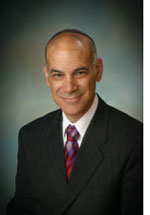 SAN DIEGO—Judy and I recently attended a Scholar-in-Residence lecture that was sponsored by Temple Emanu-El. Since Temple Emanu-El is under construction the lecture was held at the First United Methodist Church in Mission Valley. SAN DIEGO—Judy and I recently attended a Scholar-in-Residence lecture that was sponsored by Temple Emanu-El. Since Temple Emanu-El is under construction the lecture was held at the First United Methodist Church in Mission Valley.
Judy noticed that as soon as we entered the room she was approached by several church members. They did not know she was a "rabbi's wife," only that she was an unfamiliar face. They welcomed her, engaged her in conversation, and did their utmost to make her feel at home and at ease.
A few days later I and several Tifereth Israel board members attended a workshop featuring Dr. Ron Wolfson that was sponsored by the United Jewish Federation's Synagogue Committee. One of the topics was "How do we welcome newcomers to our congregations?" When I shared the warm welcom Judy received at the church, Dr. Wolfson observed hat there just seems to be something in the DNA of Christians which makes them much omre willing to reach out to strangers than do Jews.
Perhaps it is not in our Jewish DNA, but it is certainly in our T.N.<. (TaNaKh—The Jewish Bible!)
"The stranger who resides with you shall be to you as one of your citizens; you shall love him as yourself, for you were strnagers in the land of Egypt: I the LORD am your God." (Lev. 19:34)
"You too must befriend the stranger, for you were strangers in the land of Egypt." (Deut. 10:19).
We also find an open invitation for strangers to join us at our Passover Seders in the Haggadah: "Lt all who are hungry, come and eat!"
Despite the encouragement of our sacred texts, we often do a poor job at welcoming visitors to our community.
One participant in Dr. Wolfson's workshop pointed out that historically Jews may have been hesitant to welcoem strangers due to their fears that someone posing as a friend could turn out to be an enemy. While this may have been true in one age, it certainly is not a valid excuse today. Most people, be they Jews or non-Jews, who enter synagogues today come with openness, curiosity, and the best of intentions.
Synagogues spend a lot of time agonizing over the best techniques for attractign new members. Resources are poured into advertising, brochures, letters, and the like. The best way to build membership, however, may prove to be the simplest and yet most difficult: to reach out our hands and hearts to everyone who enters our doors or indicates interest in our community.
A warm personal welcome and genuine interest in elarning about what brings another human being joy and pain is not only the best way of ensuring the growth of a congregation, but also of transforming it into a caring community. Especially if it not in our DNA, we must work harder to do so.
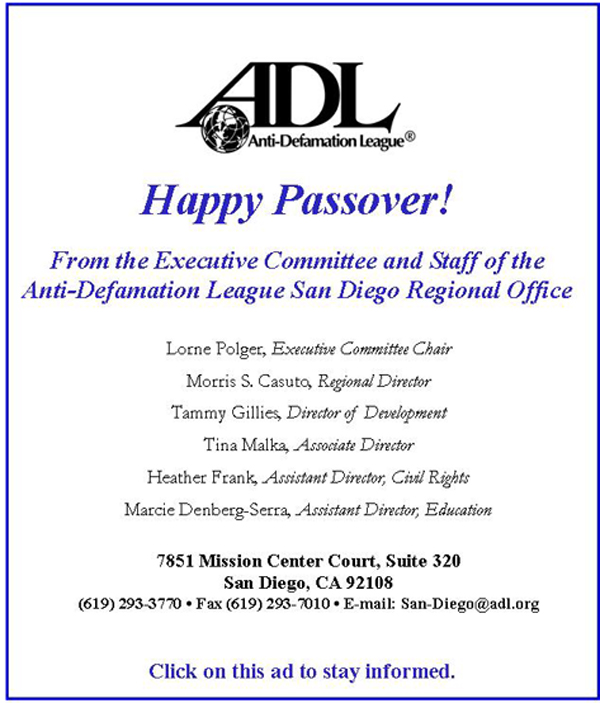

ADVENTURES IN SAN DIEGO HISTORY
Editor's Note: We continue our reprinting from the September 20, 1922 edition of The San Diego Jewish Community News—a benchmark edition that outlined the history of Jewish organizations in San Diego. If you have historical topics about the San Diego Jewish community you would like us to explore, please e-mail your suggestions to editor Don Harrison at sdheritage@cox.net
Lasker Lodge
By L.A. Blochman
From The San Diego Jewish Community News, September 20, 1922, page 11
In the year 1887, San Diego was visited by a “boom” and with the prosperity that took place at that time came an influx of Jews. With the added Jewish population, naturally came added Jewish activities and ten was found the need of an organization—representative of the entire Jewish population. A movement was then started, with the result that the active Jewish workers of that time banded themselves together and organized Lasker Lodge, 370, I.O.B.B. {International Order of B’nai B’rith}
On June 26, 1887, Grand President Marcus Levy came to San Diego and assisted by Past Presidents Schoenfeld and Linoberg, initiated into the order Albert Herz, H.J. Wurzburg, J.S. Schiller, Isaac Levi, Wm. Cline, Louis Speyer, L.A. Blochman, L. Epstine, Adolph Levi, A. Fortlouis, F. Brown, M. Pearlstone, Chas. Wolfsheimer, Abe Spring and Louis Lemline.
At that time the order did not cover the scope of the resent organization. In addition to its fraternal character it also was a beneficiary order. It paid a stipulated benefit to the family of deceased brethren. This necessitated a strict medical examination and kept out of the order many who had the interest of Judaism at heart, but who could not be admitted on account of the age limit or their physical condition. Also it necessitated the payment of high monthly dues which kept out of the order many who were financially unable to pay the amount charged, and many unmarried men having no family responsibilities who did not feel like paying the insurance on the lives of their more fortunate brethren. Eventually all of this changed and the insurance feature was eliminated, the scope of the order enlarged and broadened and put upon the footing we find it today.
The history of the local lodge is a series of ups and downs. The growth and stagnation of the city is reflected in the membership of the Lodge and it has had its fat years and its lean years. The Jew has always been regarded as progressive and one who flocks to cities where business is good, and so as times became worse and business slack, many left San Diego, and when times got better returned. The changing membership roll of Lasker Lodge is a mirror of San Diego’s varied career.
The minutes show that from January 1899 to December 1904, only 30 meetings were held, and that from April 1905 to July 22nd, 1907 was a lapse where not a single meeting is recorded. From 1908, however, a steady growth is shown. All during that period of darkness and gloom, to a handful of faithful members goes the credit of holding the organization together. Many a night the faithful few met together and saw the meeting adjourned for lack of a quorum. Still undaunted they held the charter and on the old foundation, stronger than ever before is built the present prosperous structure.
The first President of the Lodge was Simon Levi. Our lte and highly beloved brother had the distinction of sering {steering?} Lasker Lodge in the capacity of President at various times for a period of eight years. Brother Levi, though a vehy (sic, very) busy man, and one who in addition to his large business interests held offices in many clubs and orders and was prominent in civic and social activities, always found time for his brethren of the B’nai B’rith. H considered it a duty of all Jews to give of their time to elevate and instruct Jews less fortunate than he was, and to realize that the acts of all Jews in the community reflected on the individual.
Our late brother Julius Nauman had the distinction of filling the Presidency for four consecutive years and was also one of those whose precept and example stands before us today as a guide to our fraternal duty. Adolph Levi has served faithfully for three years. The late brethren, I. Kaufman and Isaac Kuhn, each served two consecutive terms and we find amongst our list of Past Presidents the following; some of them gone to the great beyond, some of them removed to other parts, some of them still active for the good of the order, others resting on their laurels, but all having played an active part in the history of the Lodge: E. Lowenstien, A. Lippman, S.I. Fox, Sam Brust, R. Schiller, Gus Kuhn, H.S. Wolf, H. Lischner (two terms), M. Binnard, Harry Goldberg, I.T. Davidson, J. Weinberger, A. Rosenthal, L.A. Unger, M.E. Meyer, E.H. Samisch and Nate Baranov (our present incumbent).
Though the I.O.B.B. may look with pride on its past achievements, and the part it has been called upon to perform in the upbuilding of Judaism and the protection of the Jewish interests, never before in its history did it occupy the position it does today. It is the one organization where all Jews, irrespective of ritual, nationality or personal belief can meet upon a common ground, all for one and one for all.
Never, since the United States has been established, has there been the open attacks on the Jews that there is at present, not only individual attacks but organized anti-Semitism, and in now way can the Jew defend himself to better advantage from such attacks than by giving his support and encouragement to the order that is his benefactor and protector. Lasker Lodge today fills a more important place than it has ever occupied before and it is the duty of every Israelite to become a member and work for the good of all.
Beneth Israel Sorority
By Miss Rhoda Meyer
From The San Diego Jewish Community News, September 20, 1922, page 15
The Beneth Israel, an organization composed of the younger set of the Jewish community, is now beginning its third successful year in this city.
The sorority was proposed by Miss Pearle Kaplan and Mary Wrottenberg, nee Mary Radin, in April, 1920, for the purpose of promoting sociability among the Jewish girls.
The charter members consisted of the Misses: Pearle Kaplan, Rebecca Berman, Gussie Levin, Minnie Lischner, Frances Smith, Rhoda Meyer, Juliette Sterling, nee Juliette Amiel, and Mary Wrottenberg, nee Mary Radin. A constitution and bylaws were drawn up, and the Sorority soon grew. Within the following year, those initiated into its ranks were, the Misses Eleanore Weinberger, Pauline Lischner, Helen and Rose Broderson, Minnie Einsig, Lillian Singer, Sophie Jacobson, Sara Rosenstein, Jeanette Grossman, Sivia and Rebecca Goldberg, Edna Zimel, and Leonora Ancker.
Formed for the purpose of sociability the girls have accomplished a great deal in bringing together the Jewish girls, and in establishing a spirit of friendliness. They have also proven an active aid in all national and local works of benevolence.
Among the entertainments given by the Beneth Israel Sorority were several dances at the Wednesday Club House, and benefit affairs, the proceeds being devoted to various charitable causes.
Beginning a new year, the Sorority will encourage the study of classical literature, as well as taking the interest in current events of the day. To further develop this plan, at each business meeting, one current event and one story or book review will be rendered by a member.
The meetings take place on the second and fourth Tuesday of each month at the homes of the members. The present officers are: Rhoda Meyer, President; Sivia Goldberg, Vice President; Sara Rosenstein, Secretary; Jeanette Grossman, Treasurer.
The Boy Scouts
By Arthur Goldberger
From The San Diego Jewish Community News, September 20, 1922, pages 17, 20
I would like to bring to the attention of the Jewish Mothers of San Diego, the fact that the world interest in the Boy Scout movement challenges the intelligent understanding of every one and yet, many people still ask, “What do Boy Scouts do?”
Mothers, scouting means outdoor life and so, health, strength, happiness and practical education. It develops the power of initiative and resourcefulness. It will help your boy and it will insure his being a good citizen through the special character building program which the Scout movement carries out.
The Boy Scout movement healthfully and sanely offsets the disadvantages which civilization has caused. It seeks to help boys on leaving school, to find some definite trade or handicraft by which they may earn an honest living.
Scout Craft includes instruction in chivalry, patriotism, conservation, personal and public health, fist {sic, first} aid, life saving, nature study, camp craft, cooking, swimming, elf defense, signaling and all of the handicrafts.
No expense in equipment is required. All that is needed is the out-of-doors, a troop of boys and a competent leader. By combining wholesome outdoor activity with the influence of the Scout Promise and Law, the boy develops character. In Scouting, the boy does not stand still. He is given a chance to advance himself according to his ability to advance. He first becomes a Tenderfoot, then a Second Class Scout, and then a First Class Scout. After this, the whole sphere of the Scout’s program by the boy’s own application in qualifying himself to pass the tests for the various merit badges. As a start, the boy will adopt as real and vital, the universally accepted principles of life, as set forth in the Scout Promise and Law.
Before he becomes a Scout, a boy must promise that “On my honor I will do my best.”
1. “To do my duty to God and to my Country and to obey the Scout Law
2. “To help other people at all times.
3. To keep myself physically strong, mentally awake and morally straight.”
It has been brought to my attention many times that a false impression has been circulated throughout our community, and particularly by prominent people, that the Scout movement was purely military organization. This is an untruth, and whoever utters such an opinion is either ignorant, or does not want to be told the real meaning of Scouting. It is most emphatically not a military organization. It is neither military in thoughts, form or spirit, although it does instill military virtues, such as honor, loyalty, obedience and patriotism.
The Boy Scouts of ameria, as an organized body, recognize the religious element in the training of a boy, but it is absolutely non-sectarian in its attitude toward religious training. Its policy is that the religious body, or institution with which the boy scout is connected, shall give definite attention to his religious life. If he be a Catholic boy, the Catholic Church is the best channel for his training. If he be a Jewish boy, then the Synagog will train him in the faith of his Fathers. If he be a Protestant, no matter to what denomination of Protestantism he may belong, the church of which he is an adherent or member, is the proper organization to give him education into the things that pertain to his religion.
There are probably fifty boys between the age of twelve and fifteen years in the San Diego Jewish Community. In from three to nine years these boys will become of age and will then assume the reins of leadership.
To become a Scout, a boy must be at least twelve years of age. He must pass a test in the following. Know the Scout Promise and Law; know the composition and history of the American Flag and of respect due to it; tie eight standard knots.
The pecuniary end of it is so small that it is really not an item, because on the payment of fifty cents as a National Registration fee, and five cents for his badge, the boy is enrolled as a Scout and is entitled to wear the Scout Uniform and Insignia.
It may be interesting for you to know that there are at present more than twelve hundred Boy Scouts in San Diego County and the Jewish people of the Community can be justly proud of their own Troop 38, which has always made a splendid showing in all scout events.
In 1921, a Summer Camp was held at Laguna, by Troop 38, where more than twenty-three boys took part in a most enjoyable time. A professional cook was hired; each boy was taxed a nominal fee and after ten days of strenuous scout work, the boys were sorry to leave the camp grounds. This was a feather in the cap of Troop 38, because no other troop in the city attempted to carry on a summer camp alone. It had to be done by the help of the central headquarters.
My dear Parents, you owe it to your boy to let him joint (sic, join) the Scouts. You can give him the training that he cannot obtain in school and if you will visit the troop meetings and see the intense enjoyment the bys have out of this work, I know you would feel as I do, that it is the greatest help to mould the character of our future men known. I, s Scoutmaster of Troop 38, and Deputy Scout Commissioner of District No. 1, San Diego County, appeal to you to give us your boys so that we may have material to carry on this great work, so that we may help your boy meet the tests of life under present day conditions. Remember the boy of today is the man of tomorrow. Help us mould him into the highest type of Americanism.
Announcement will be made later as to the exact date of meetings of Troop 38, in the Community Welfare Building. We hope you will not fail us for we are carrying on a great work.

Please click on the schools' ads to visit their respective websites



SAN DIEGO JEWISH WORLD THE WEEK IN REVIEW
Shoshana Bryen in Washington D.C.—Why is the U.S. sanctioning the arming of Palestinians; who will be the beneficiary?
Cynthia Citron in Los Angeles: Survivor Mitzvah Project brings help, caring to elderly Jews in Eastern Europe
Donald H. Harrison in San Diego: American Jewish POW, held by Nazis, brings history alive for SDJA students
Rabbi Leonard Rosenthal in San Diego: Lingering over seder: A sign of freedom
Alan Rusonik in San Diego: Educating our students about Israel
Adventures in San Diego History: Members of San Diego's Jewish community in 1922 looked at their past, present and future.
Rabbi Michael Berk in La Jolla, California: All deaths by violence are not the same
Sherry Berlin in San Diego: A U.S. Civil War story—for Passover
Sheila Orysiek in San Diego: Chapter Two in the serialization of her novel, Reluctant Martyr
Rick Schwartz in San Diego: Seders connect family and community
And:
San Diego Builders of Israel, published by the United Jewish Federation of San Diego County in celebration of Israel's 60th year. Free download
From the Archives: Members of San Diego's Jewish community in 1922 looked at their past, present and future.
Shoshana Bryen in Washington, D.C.: Maliki's victory: Iran's big setback in Iraq
Donald H. Harrison in La Jolla, California: The thought at the Red Sea: Si, se puede!
Michelle Rizzi in San Diego: Like or hate it, Atonement garners 'Whys?'
Ira Sharkansky in Jerusalem: Violence, not settlements, blocks peace
San Diego Builders of Israel, published by the United Jewish Federation of San Diego County in celebration of Israel's 60th year. Free download
Wyman Brent in Vilnius, Lithuania: So, how will a nice Gentile boy help to restore Jewish learning in Lithuania?
Carol Davis in San Diego: Racism, anti-Semitism, sexism combine in lesbian love story at the Diversionary
Alex Grobman in Englewood, New Jersey: Rabbi Herbert Friedman, founder of Wexner Heritage Foundation, dies at 89
Donald H. Harrison in La Jolla, California: Sha'ar Hanegev citizens familiarize themselves with Reform Judaism
Eileen Wingard in San Diego: A Jew and Muslim to make music together
Link to previous editions
< BACK TO TOP
|
|

 —
—